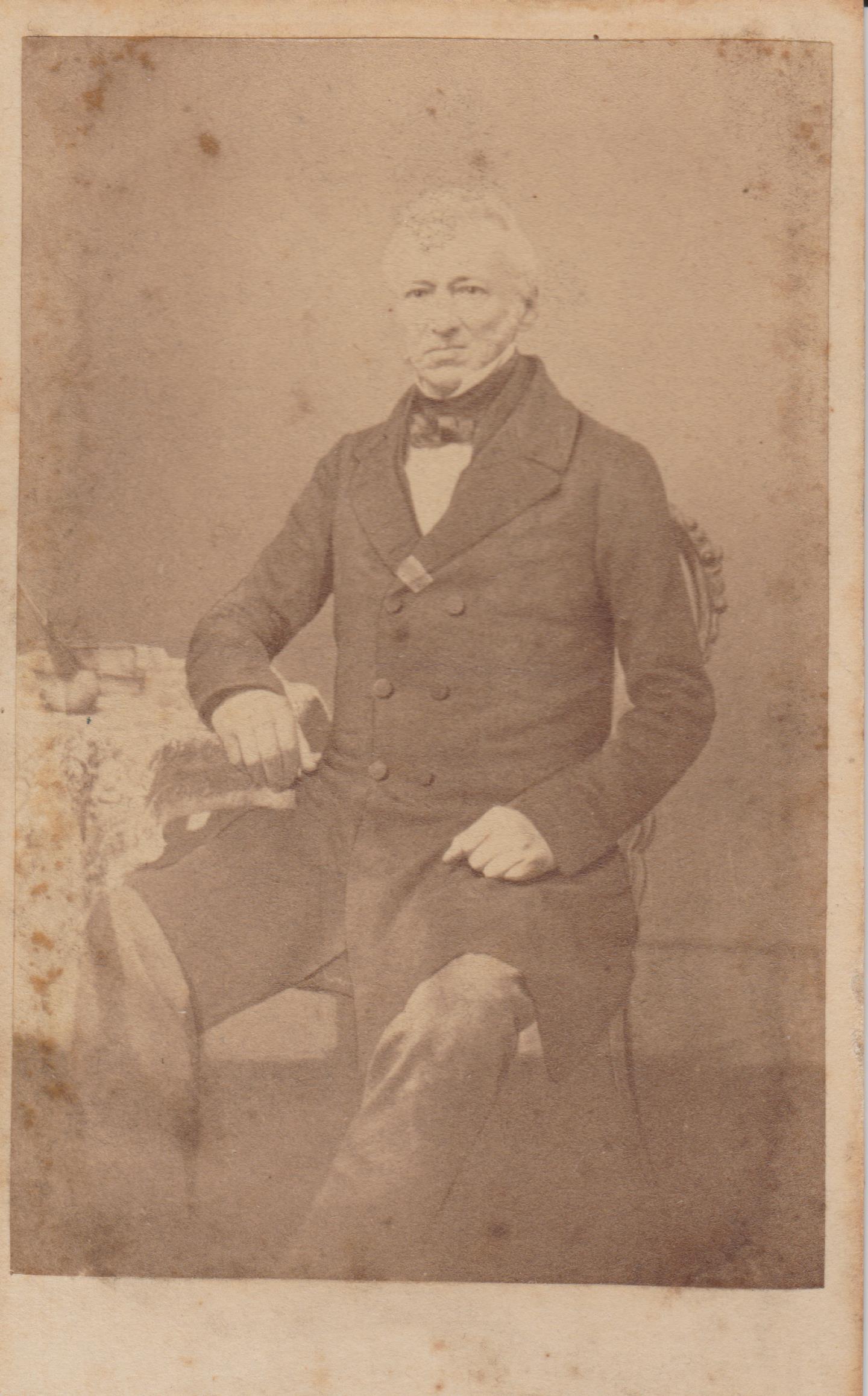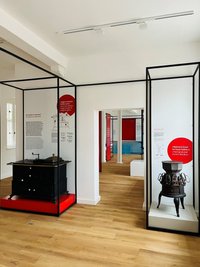Schwarzweißfotografie, sog. Carte-de-Visite. Dieses Portrait aus dem Jahr 1860 zeigt den Bendorfer Fabrikanten Adolph Remy, der am 13. November 1789, als Sohn von Friedrich Remy und seiner Ehefrau Henriette Gienanth in Bendorf geboren wurde. Ab dem Jahr 1817 war Adolph Remy Teilhaber an der Firma "Remy, Hoffmann & Cie.", welche er in Gemeinschaft mit seinen Brüdern Wilhelm-Gideon Remy und Christian Remy führte. Adolph Remy blieb unverheiratet und starb am 20. August 1862 in Bendorf.
en

